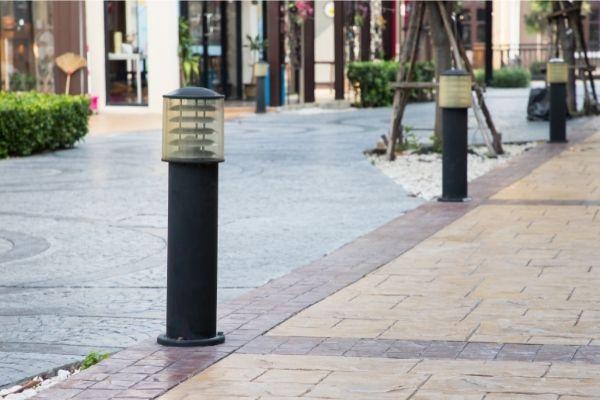
Things You Need to Know About Bollard Lights
If you have been shopping for outdoor lighting for your home or business premises, then there are a few important points that you must understand in order to help ensure that you purchase the highest quality bulbs, and the most effective bollard lights.
Bollard lights are small lights that you can hang from between two posts, or between wall panels, or even between the trees in your landscaping. You will find that these lights have gained in popularity over years, and for good reason - they offer a great deal of convenience, as well as being very stylish and functional.
Factors to Consider When Buying Bollard Lights

First of all, it is important to understand that residential bollard lighting is not something that you would want to use for indoor illumination on your property. These are typically used in exterior residential areas for lighting purposes and are not suitable for illuminating properties that are not in use.
This type of lumens lighting is best suited for illuminating walkways, driveway walkways, or other similar general-purpose areas that you would like to make appear brighter and more inviting.
How Do We Use Bollard Lights?
Bollard lights are one of the most common types of outdoor lighting. They are often seen in front of museums, at intersections and around public parks. But what exactly is a bollard light?
Bollard lights are one of the most common types of outdoor lighting. They are often seen in front of museums, at intersections and around public parks. But what exactly is a bollard light? And why do they have this name? These questions and more will be answered in this article!
Bollard lights work by illuminating the ground with light, often done via LEDs. The bollard lights we see today were popularized in England in the early 1800s, and the word "bollard" comes from "bulwark," which means to guard or protect like a fortress.
Where to Use Bollard Lights

Bollard lights are one of the most common types of outdoor lighting. They can be seen in front of museums, at intersections and around public parks. But why do they have this name? These questions and more will be answered in this article!
Bollard lights were originally invented to light the way for pedestrians walking along a road or sidewalk. They help keep people safe, especially in the dark when a building's lighting does not reach that far. In addition to being used to provide safety for pedestrians at night or during the day, bollard lights are also used on roadways and in parking lots for added safety.
Using Bollard Lights for Landscape Lighting
Bollard lights can be used to add some extra landscape solar lights. They come in many shapes and styles, so you can choose the one that best fits your needs. You can also attach spotlights or lanterns for more illumination as well as color-changing LEDs to give the area an even more festive look!
How Bollard Lights Help You

Bollard lighting is a particularly good option for garden lighting as they are usually best suited to lighting paths, driveways and entrances to homes or gardens. They make great security lights but can also be used as part of an ambient lighting scheme.
Bollards are low-level lights that help guide pedestrians in the dark. They also illuminate entrances and exits in public places like museums, schools or hospitals. Bollard lighting helps keep people safe by preventing them from tripping over hidden objects, such as an uneven paving stone or a flower bed.
Illuminate Driveways and Walkways
Bollard lighting is a particularly good option for garden lighting as they are usually best suited to lighting paths, driveways and entrances to homes or gardens. They make great security lights but can also be used as part of an ambient lighting scheme.
Improve Your Garden with Bollard Lights
Bollards are low-level lights that help guide pedestrians in the dark. They also illuminate entrances and exits in public places like museums, schools or hospitals. Bollard lighting helps keep people safe by preventing them from tripping over hidden objects, such as an uneven paving stone or a flower bed.
